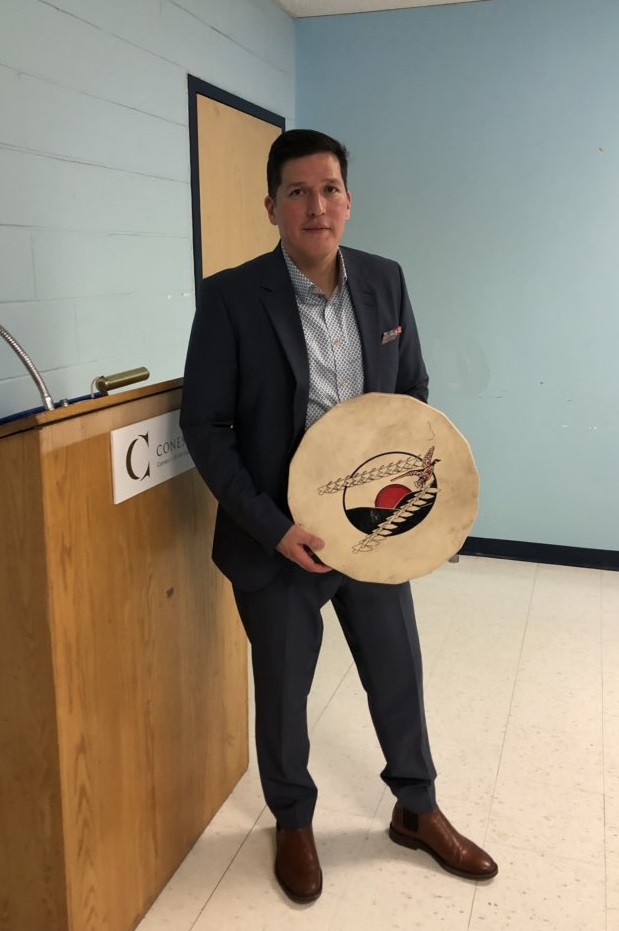On March 15, Conestoga’s Aboriginal Services and Student Engagement teams hosted the college’s third annual Truth and Reconciliation event. Held at the Doon campus, the event welcomed members of the Conestoga community for a full-day of presentations that focused on the theme “Truth and Reconciliation in our backyard: What are you doing to contribute in your home or community?”

Keynote speaker Eddy Robinson shared his journey as an Indigenous student at Conestoga's Truth and Reconciliation event on March 15.
Christina Restoule, manager of Aboriginal Services, began the day with a discussion on the importance of the Indigenous Education Protocol which was signed at the college in October 2018. The protocol includes seven guiding principles to address the learning needs of Indigenous peoples and to support self-determination and socio-economic development of Indigenous communities.
Other presenters were drawn from the community and included elder Tauni Sheldon and Jennifer Parkinson, president of the Grand River Metis Council, who both touched on their own experiences as Indigenous women.
“What we’re doing today is important because my son’s grandchildren and generations to come need to have these conversations, need to be able to talk in an open and truthful way, need to understand the true history -- not what I grew up with in grade in school,” explained Sheldon who was taken from her Inuit community as a baby during the 60s scoop -- a time when thousands of Indigenous children were removed from their families without consent.
“Let’s start with reconciliation and truth in our backyard -- it starts with us. You have to understand your own history,” added Parkinson, who didn’t learn she was Metis until she was almost 40. “It doesn’t matter what happened yesterday ... every day is an opportunity to make things better.”
Keynote speaker Eddy Robinson shared his journey as an Indigenous student. Born and raised in Toronto, it was not until his adult years that he began to learn about and understand his father’s experience at residential schools. Over the last 25 years he has worked and advocated for Indigenous communities across Canada.
“It’s not fair to us that we don’t know our own story,” said Robinson. “How are we supposed to form relationships based on misconceptions?”
He called on the college community, and its individual members, to review the Truth and Reconciliation Commission of Canada’s calls to action and to find ways to practise them.
Conestoga's Be-Dah-Bin Gamik, a Place of New Beginnings, provides services for Indigenous students at Conestoga, including those who are First Nations (status and non-status), Metis and Inuit. It is a welcoming environment that assists students with a smooth transition to college life by providing ongoing support. Services include social and cultural events and activities, un-traditional counselling services and Elders-in-Residence programs.
